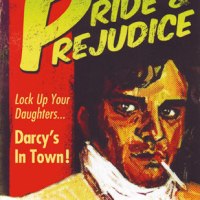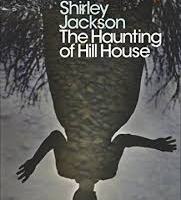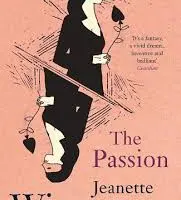P.G. Wodehouse is one of the best comic writers in print, a master of the comic phrase, with a style of writing which I believe requires far more skill than is immediately apparent (much like Runyon in that, though the styles are very different in some respects). He is an incredibly funny writer, endlessly quotable, fully deserving of his fame.
Wodehouse’s most famous creations are of course Bertie Wooster and his Gentleman’s Gentleman, Jeeves. It’s unlikely anyone reading this doesn’t know who they are, but on the off chance Bertram Wooster is a wealthy young man of good family but, like Winnie the Pooh, of very little brain. Still, he’s a generous young man, innocent of harm and generally a pretty nice chap. Jeeves is his valet, a man of unusual intelligence and resource, a perfect servant and one on whom Bertie relies to get him and his friends out of their endless scrapes involving fearsome aunts, unsuitable chorus girls and other unlikely adventures.
‘Sir?’ said Jeeves, kind of manifesting himself. One of the rummy things about Jeeves is that, unless you watch him like a hawk, you very seldom see him come into a room. He’s like one of those weird birds in India who dissolve themselves into thin air and nip through space in a sort of disembodied way and assemble the parts again just where they want them. I’ve got a cousin who’s what they call a Theosophist, and he says he’s often nearly worked the thing himself, but couldn’t quite bring it off, probably owing to having fed in his boyhood on the flesh of animals slain in anger and pie.
Probably the best place to start with Jeeves and Wooster is the 1923 collection The Inimitable Jeeves, eleven connected short stories which as well as being among the first are among the best Wodehouse ever wrote. After that, comes Carry on, Jeeves – the collection I’m writing about today. Written in 1925, this contains ten stories, many of them set during Bertie’s sojourn in New York in hiding from his Aunt Agatha, and which are in the main brilliant.
Like the TV series House (for the first three seasons anyway) or the boxing stories of Robert E. Howard, almost every Jeeves and Wooster story follows much the same template. That doesn’t matter, one doesn’t read Wodehouse for the plot, one reads for the sheer brilliance of the prose, but it can mean that a collection can be more enjoyable if spaced out a story or two at a time between other reads. That said, I gulped this collection down in two days, and enjoyed it thoroughly, good enough writing after all forgives any fault.
So, what is this template? Well, it doesn’t hold for every story, but it does for most. Here goes:
1. We normally open to learn that Bertie and Jeeves have to a degree fallen out, normally over some sartorial experiment upon which Bertie is engaged and of which Jeeves does not approve.
… Soft silk shirts with evening costume are not worn, sir.’
‘Jeeves,’ I said, looking the blighter diametrically in the centre of the eyeball, ‘they’re dashed well going to be. I may as well tell you now that I have ordered a dozen of those shirtings from Peabody and Simms, and it’s no good looking like that, because I am jolly well adamant.’
‘If I might-‘
‘No, Jeeves,’ I said, raising my hand, ‘argument is useless. Nobody has a greater respect than I have for your judgement in socks, in ties, and – I will go farther – in spats; but when it comes to evening shirts your nerve seems to fail you. You have no vision. You are prejudiced and reactionary. Hidebound is the word that suggests itself. It may interest you to learn that when I was at Le Touquet the Prince of Wales buzzed into the Casino one night with soft silk shirt complete.’
‘His Royal Highness, sir, may permit himself a certain licence which in your own case-‘
‘No, Jeeves,’ I said firmly, ‘it’s no use. When we Woosters are adamant, we are – well, adamant, if you know what I mean.’
‘Very good, sir.’
2. Next, generally while the frost of disapproval is yet on, one of Bertie’s chums approaches him with a problem which to them seems insurmountable. Normally, it involves a disapproving relative on whom the friend is reliant for funds, but who for one reason or another is threatening to cut off the same, or it involves a desire to marry an unsuitable girl, generally of a theatrical persuasion (often in the chorus). Sometimes, it’s both.
I began to understand why poor old Bicky was always more or less on the rocks. To the casual and irreflective observer it may soud a pretty good wheeze having a duke for an uncle, but the trouble about old Chiswick was that, though an extremely wealthy old buster, owning half London and about five counties up north, he was notoriously the most produent spender in England. He was what Americans call a hard-boiled egg.
Sadly for poor old Bicky, he is dependent upon the above hard-boiled egg for his remittance, but that only flows because the old man believes Bicky is a success in business, and his forthcoming visit to New York will show that instead Bicky’s most notable feature is his ability to imitate a bull-terrier chasing a cat up a tree.
3. As neither Bertie nor his friends have much in the brains department, Jeeves suggests a scheme. And yet, despite the man’s undoubted brilliance, it often fails to quite come off on the first instance.
‘I was about to suggest, sir, that you might lend Mr Bickersteth this flat. Mr Bickersteth could give His Grace the impression that he was the owner of it. With your permission, I could convey the notion that I was in Mr Bickersteth’s employment and not in yours. You would be residing here temporarily as Mr Bickersteth’s guest. His Grace would occupy the second spare bedroom. I fancy that you would find this answer satisfactory, sir.’
[Later, Bertie hears that Bicky is not entirely happy with the outcome.]
‘What’s his trouble now?’
‘The scheme which I took the liberty of suggesting to Mr Bickersteth and yourself has, unfortunately, not answered entirely satisfactorily, sir.’
‘Surely the duke believes that Mr Bickersteth is doing well in business, and all that sort of thing?’
‘Exactly, sir. With the result that he has decided to cancel Mr Bickersteth’s monthly allowance, on the ground that, as Mr Bickersteth is doing so well on his own account, he no longer requires pecuniary assistance.’
4. Jeeves, however, is dauntless. With a little behind the scenes maneouvering and a great deal of native wit, he brings matters to a successful conclusion. Young love is brought together, aunts and uncles continue the provision of funds, all is well with the world. In gratitude, Bertie allows Jeeves to dispose of the offending garment over which they had originally fallen out.
‘Oh, Jeeves,’ I said; ‘about that check suit.’
‘Yes, sir?’
‘Is it really a frost?’
‘A trifle too bizarre, sir, in my opinion.’
‘But lots of fellows have asked me who my tailor is?’
‘Doubtless in order to avoid him, sir.’
‘He’s supposed to be one of the best men in London.’
‘I am saying nothing against his moral character, sir.’
The suit, it is fair to say, is by this point not long for Bertie’s wardrobe.
And that’s it, with that template and the odd minor variation you could in theory write most of the Jeeves and Wooster stories, except you couldn’t at all because none of that matters in the slightest. The structure, the plot, is merely a hook on which to hang the dialogue, the absurd situations, the general farce of it all.
Characters, too, follow types. As in the Commedia Dell’Arté the same personalities (though their names may change) recur time and again, story to story – the fearsome aunt, the rich but eccentric uncle, the intimidating fiancée, the irritating and untrustworthy young nephew, the dim but affable friend (usually either an impoverished artist or well off but dim chum from Oxford). Again, it doesn’t matter, the Commedia Dell’Arté is a meaningful comparison because it does precisely the same thing and for the same reason – the familiarity is a springboard for creativity, not merely a restraint on or lack of it.
And there we have it. On this occasion, the stories include the first encounter between Bertie and Jeeves, and one marvellous story told from Jeeve’s perspective (the stories are normally told in Bertie’s voice). Of the ten, nine are extremely funny, one a bit of a duff but that’s not a bad strike rate. This is an exceptional collection, from a major talent.
My analysis above may have made it all seem a bit dry, a bit formulaic, but it really isn’t. Instead, it’s the most wonderful froth, the foam on a glass of champagne, a quote on every page and a collection it’s impossible not to be cheered by. The formula allows Wodehouse in the space of a short story to create elaborate set-ups, mischances and misunderstandings that lead to quite simply hilarious outcomes. There is an inevitability, if an elderly aunt is convinced (wrongly) that Bertie hates cats, you know he’ll step on the poor thing before leaving the room, but watching it all unfold is a key part of the pleasure.
After the desolation of One Man’s Justice, this was the perfect follow-up and antidote, beautifully written, exceptionally funny, really quite wonderful. There is a reason these stories, these characters, are so widely loved. I’ll finish with one final quote, a conversation between Bertie and an unwelcome house guest:
‘What ho!’ I said.
‘What ho!’ said Motty.
‘What ho! What ho!’
‘What ho! What ho! What ho!’
After that it seemed rather difficult to go on with the conversation.
Carry on, Jeeves – sadly the rather marvellous cover in this Penguin edition appears to be being discontinued, a great shame. On another note, Trevor of The Mookse and the Gripes blog has written up one of the Psmith series here, which may also be of interest.













I love these stories… but indeed to let some time pass between each stories is compulsory for me since the setting is always the same (as you have exemplarily albeit dryly demonstrated).
Nick,
Thanks for the comment. I was a bit worried here actually about doing a whole crushing a butterfly on a wheel sort of thing, there’s nothing less funny than an explained joke.
The trouble though, was I didn’t have a lot to say beyond “it’s brilliant and huge fun”, which seemed hardly worth a blog entry. So I thought I’d explore the structure a bit.
Of course, I do say that none of the structure really matters, so in the end I did sort of say “it’s brilliant and huge fun”, just in a lot more words.
Ah well. All that said, it is brilliant and huge fun…
Do not sweat Max old boy; I’m pretty sure the aptly selected quotes will make anyone with half a brain (so even Bertie) understand that it is lovingly funny and brilliantly brilliant.
And your Comedia Dell’Arte analogy is just cherry on the cake.
I would just add that it reads just as a jolly good pal of yours would tale his latest adventures (thanks to the acute vocabulary and narrative tone so deftly employed). When you read Wodehouse, you clearly are in the presence of one of your best friends.
Max: I thought the exploration of structure quite worthwhile, since it is so apt. When you think about, Jane Austen’s novels have their own version of a common plot structure. Every tree has a trunk and branches but that doesn’t mean they are all the same.
I’ve not read much Austen actually, must fix that.
On quotes, the trouble with Wodehouse, is really one wants to just quote the entire book. It’s out of copyright, so one could, but while I have no particular problem with long quotes even for me that might be seen as a tad on the excessive side.
Now I should probably reread those Robert E. Howard boxing stories, and give them the same treatment. Regrettably, Mr Howard has yet to receive his critical due in respect of those tales, which I fear are now quite unfashionable…
Weirdly I always find Raymond Chandler reminds me of Wodehouse – it’s their use of language and aphorisms – and then found out they went to the same school – and at pretty much the same time. Must have been some kind of heroic English teacher there…
I didn’t know that about Chandler and Wodehouse, how fascinating.
I’ll be reading Chandler again soon, I’ll bear your comment in mind when I do. And yes, that must have been some English teacher…
Hi Max, I stumbled on your blog through a link from the UK Guardian and am really pleased I did. As I type, a shelf of Wodehouse’s books looks down on me. I think he is a genius. I’m glad you took the time to flesh out his formula. The formula definitely works. But as you mention it’s the zingers on each page – there’s at least one stroke of brilliance every four paragraphs – that make him so thoroughly enjoyable. Thanks for the post, Cheers, Tanya
Hi Tanya,
I’m afraid you got accidentally caught in my spamfilter, sorry about that.
Thanks for commenting, I agree with you, I think he’s a genius too. There is at least one stroke of brilliance every four paragraphs, it’s often extremely funny and as I say above I could happily have just quoted the entire book. Masterful stuff.
P.G Wodehouse is a fantastic author. I think that his books are generally better than works such as Joyce’s Ulysses and Waugh’s Brideshead Revisited. The TV series of which you spoke is also brilliant. Fry and Laurie work well as Jeeves and Wooster.
I think you’re probably right to be honest, fond as I am of Brideshead. Ulysses I leave to others to weigh up, I’ve not read it.
The TV series is superlative, really a perfect capturing of the stories.
I say Jeeves look at this.
Sir.
They’re talking about us!
Indeed sir.
Can anybody read it?
I understand that the World Wide Web can be accessed from anywhere around the globe.
Good lord. Still I expect it’s some prank by the chaps at the Drones.
I hardly think it likely sir, the author appears to be particularly well read.
And what if Aunt Agatha reads it – she will kick Jeeves.
I consider the contingency an unlikely one sir.
Are you sure? She has a not inconsiderable network of informers… What’s the matter, a pained expression suffuses your face.
Far be it from me to be critical sir, but..
Come on out with it?
The double negative sir.
Oh for goodness sake Jeeves – you lack the touch of the common man. Anyway, what makes you think she won’t find out?
It is the conceit of the so called ‘blogger’ that the rest of the world wishes to know their opinions and is hanging on their every word.
Well, that’s as maybe Jeeves, but there’s something lacking in that logical grey matter of yours.
Sir!
Intuition. I just know that Aunt Agatha and her battalions are searching every name on the Drones club membership list at this very moment.
Pingback: Linklog: The door in the cover, the greenness of Kindles, and more
Pingback: Post Christmas round-up | Pechorin's Journal